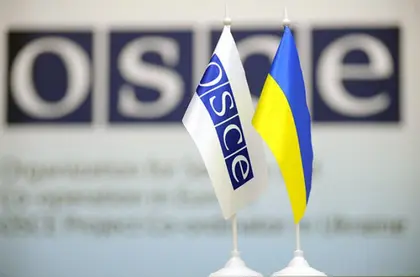On June 10, Politico published an article by Christopher Miller and Stephanie Liechtenstein titled “Inside the OSCE’s Botched Withdrawal from Ukraine”. It divulged the organization’s audacious treatment of local staff.
Among other things, the OSCE failed to inform them in advance about international colleagues’ withdrawal from Ukraine and allowed sensitive data to fall into Russian hands, putting local employees at risk.
JOIN US ON TELEGRAM
Follow our coverage of the war on the @Kyivpost_official.
Sadly, this story is no exception, with United Nations (UN) workers also coming forward to reveal the sheer scale of malpractice within international institutions operating in Ukraine.
“Internal rules and red tape turned out to be more important than human lives,” says Maria, a former employee of the International Organization for Migration’s (IOM) Resettlement Support Center.
She reached out to the Kyiv Post to describe what was going on behind the scenes in the first few days of war.
Having joined the Resettlement Support Center just one year before Russia’s full-scale invasion of Ukraine, Maria was taken aback by the IOM’s treatment of local staff.
“We attended numerous security workshops, which they told us was simply a precaution. Everyone insisted that everything was fine and that we just need to work and deliver. They told us that the office had contingency plans for ‘all possible scenarios’ and not to worry, yet, we had to destroy all sensitive data on the weekends,” Maria recalls.
On Feb. 21, just three days before missiles were flying over Kyiv, the organization announced that almost all international staff were “temporarily leaving the country as a precaution”, reiterating that the locals had nothing to worry about and should continue working.
“When the war started, we quickly realized two things. Firstly, the IOM had no contingency plans in place. Unlike many other institutions and companies, they did not rent apartments in advance and did not attempt to relocate any of their local staff. Secondly, they were simply unwilling to help. I was told that my mother was an ineligible dependent, meaning that they if they took me out of Kyiv, I’d have to leave her behind. It was shocking,” says Maria.
She adds that the head office preferred sending words of encouragement instead of acting. “Eventually, most local staff decided to stop waiting for any further instructions from the senior management of the organization and just get out as fast as possible. In other words, we were on our own.”
Maria managed to escape the city with her mother at night, leaving the country and finding shelter abroad. Some of her colleagues, however, were not as lucky, especially those stuck in the Russia-occupied territories of Donetsk and Luhansk.
“We were concerned that our male colleagues there could be forced to fight for Russia, despite all the privileges and immunities which UN employees are supposedly granted under the organization’s mandate. Other people were trapped in the very same situation, with the organization saying that their parents or other immediate family were ineligible dependents. In short, it was a mess.”
On a positive note, she says that the IOM has compensated staff for relocation costs, paying out a hefty sum to the workers. It also kept the center running from Moldova, helping some Ukrainian applicants who fled the country to leave for the U.S.
Yet, the IOM’s general attitude towards workers, alongside messages from some senior officials who said they do not read the news about Ukraine every day due to so many other armed conflicts in the world, has prompted her to rethink her career and attitude toward a system that prides itself on grand values.
“It was a strange feeling to realize that the UN organization which champions human rights did not even care to save its staff, let alone others,” says Maria.
“It made me think of Erich Maria Remarque’s novel ‘Flotsam’ where two paperless Germans were seeking help from the [then] League of Nations, only to conclude that the reason why it takes so long to issue documents and ‘make them human beings again’ is because no one really cares,” Maria explains.
In an absurd twist, Maria recalls an online meeting during the war in which a senior U.S. official announced that Ukrainian staff must take into account how to reduce carbon emissions and make the office more sustainable.
“All this talk about plastic bags in times of atrocities was baffling to put it mildly,” admits Maria.
She adds that her story is not an attempt to take a swipe against her former employer but to call out the discrepancies between words and actions.
“What is the purpose of all those endless workshops and policies where they reel off platitudes, if they turn to dust the moment they’re put to the test?” she says, adding “there is a great difference between people who work on the ground and those sitting in ivory towers, churning out so-called ‘useful guidance’ and concerns.”
According to Maria, similar issues have blighted the Red Cross, which has received profound critique for its response to the Russian aggression.
Maria left the organization and is not planning to rejoin the system. Currently working in academia, she says that her host country has done a great deal to help her out, including when it comes to employment.
“They went through the hassle of reaching out to the governing body, seeking permission to employ me as I wasn’t fluent in their native language. I couldn’t be more grateful, and it also shows that rules can always be adjusted if there’s a true will to do so,” Maria underscores.
The IOM has not responded to Kyiv Post’s request for comment.
Kyiv Post will be conducting further inquiries on this topic
Note that Maria’s name has been changed in this article to protect her identity.
You can also highlight the text and press Ctrl + Enter



